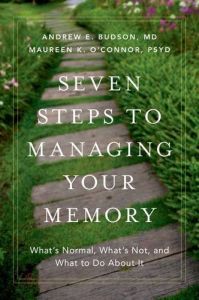If you’re getting older and find yourself being forgetful, do you worry that you could suffer from Alzheimer’s disease or another form of dementia? Neurologist Andrew E. Budson and neuropsychologist Maureen K. O’Connor, who have worked with many patients who have memory issues, offer a valuable resource for dealing with memory problems. They address the looming threat of Alzheimer’s – a primary focus in their manual. This reader-friendly guidebook also provides an excellent glossary explaining the terms in the book. While never giving medical advice, getAbstract recommends O’Connor and Budson’s guidance to people who worry about memory loss, to those who want to improve their ability to remember, as well as to friends and family members concerned about a loved one’s memory issues.
Forgetting
Does any of the following apply to you? You make a special trip to the garage and then forget why you are there. You’ve met the same person five or six times but can’t remember his or her name. A few days after you go to the theater to see a movie, you can’t remember its title or plot. You routinely misplace your wallet, keys, glasses or watch. You have trouble remembering where you parked your car just an hour ago.
If you can relate to these or similar experiences, how do you account for them? You’re likely to blame the aging process, senior moments, memory derangement, Alzheimer’s disease or some combination of these conditions. If such episodes indicate a brain or memory disorder, how do you recognize and treat it? Do you make dietary changes, adopt a different lifestyle, get more sleep, do crossword puzzles, or engage in other brain exercises and games?
With the proper guidance and assistance, you can determine if your failing memory is the predictable effect of the normal aging or if you are experiencing or are headed for a serious memory disorientation or impairment, perhaps even Alzheimer’s disease.
The right diet often...
Andrew E. Budson, MD, and Maureen K. O’Connor, PsyD, are neurology professors at Boston University. Budson is a National Research Service Award winner. O’Connor established the Memory Diagnostic Clinic at the Bedford Veterans Affairs Hospital.









Comment on this summary